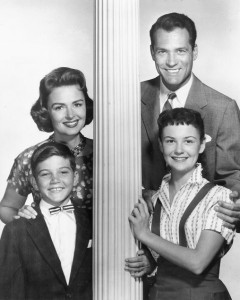Salon staffer Mary Elizabeth Williams calls herself “a gay-friendly, feminist, pro-choice, bigmouthed practicing Catholic.” In two weeks, she expects to watch as her older daughter is confirmed in the faith. In an essay published yesterday, she dissects her motives and expectations.
In the Catholic press, the conflicted or cafeteria Catholic is most often represented as a demographic bloc: the 82% of Catholics who approve of artificial birth control, the 54% that supports gay marriage. If anyone embodies the numbers, it’s usually a politician, like Nancy Pelosi, who attends Mass despite voting in defiance of Church teachings, and attracts the scorn due any public servant. For this reason, Williams’ piece is instructive. Writing less as a pundit than as an Everymom, she lays softer flesh on the bones of the type. What she ends up producing is, in fact, a kind of apologetic aimed at those Salon readers who hate all religion on general principle..
In her own words, Williams has “struggled over the years over how to impart the Christian values I treasure to my kids without saddling them with the worst aspects of organized religion — to raise them without shame or intolerance or fear of a mean old God.” In practice, these values mean that her kids should “do service to others,” “respect other people’s values,” “that they…love everybody.” Williams hopes “they are never too rigid in their worldviews that they can’t allow for mystery,” that “they are outspoken and strong,” but mostly that “they are kind.”
A couple of things struck me here. First, in handing her daughters over to the RCIC staff at her “terrific, Capuchin-run little parish church,” Williams is knowingly surrendering them to the care of people whose values she doesn’t wholly share. In her account, the “Sunday school” is “somewhat more (cough) traditional [than the rest of the parish],” and “has given us plenty of opportunities for questions and conversations, discussions about talking snakes and the like.” But Williams is okay with offering hostages to fortune. She writes: “I don’t care if they remain Catholic or become Protestant missionaries or explore Buddhism or choose atheism.” Presumably, she recognizes that either or both girls could also turn out super-Catholic — with a dozen kids, a blog on National Catholic Register, or both — and has come to terms with it.
Second, even in the face of everything Mom and Mother Church teach, the girls seem to be following their own inner cues. The elder, “a natural skeptic,” takes after her mother “in that she questions what she can’t see but she wants to believe that it’s out there anyway.” The younger, “a natural believer with the heart of a preacher,” is “open about her faith to the point of exuberance; she loves Jesus, her dad says, like Prince loves Jesus.” A future Adore Ministries recruit? Inshallah.
Now, it’s certainly true that Williams’ own beliefs don’t add up to the whole Catholic megillah. But neither do they resemble very closely the caricature of “bad religion” that Ross Douthat and others put about. She has very little to say on self-fulfillment or self-actualization; instead, her dreams for her kids center on their relations to others, in particular, that they be good and useful. This is a far cry from Deepak Chopra, much less Eat, Pray, Love. Even Fr. Richard John Neuhaus conceded that "Golden Rule Christianity" should not be dismissed so lightly. "You can do a lot worse than the Golden Rule,” he writes, “as a maxim in support of social peace and cooperation.”
At the very least, then, we can be confident Williams’ daughters won’t turn into mean girls or cyberbullies or Ponzi schemers. In an era when elite families are hiring disabled people to chaperone their striplings on trips to Disney World — the hope being that the guides’ handicaps will get the kids onto the express lane to the rides — any determination to impress kids with a sense of humility or social obligation is cause for applause.
What would Pope Francis make of Mary Elizabeth Williams? Probably several contradictory things. On the good side, by teaching her kids the very basics of Christianity and by trusting the Church to do the rest — indeed, by declaring in public that she loves her faith — Williams is evangelizing. Her Church, though it keeps her daughters occupied for a few hours on weekends, is no babysitter. On the bad side, because she professes support for abortion and same-sex marriage to the very same, very large, readership, “Eucharistic coherence” would probably require she be denied Communion. In short, she’d get a mixed review.
I’m beginning to think the Church could achieve near-complete Eucharistic coherence if it were to launch a massive PR campaign elevating the popular perception, or at least the self-perception, of baptized Catholics who voluntarily refrain from communing. It could be emphasized that these people, far from pariahs, are auxilaries, associates, fellow-travelers. Absent any gross conflict of interests, they’d be encouraged to work in ministry, and even, to a point, permitted to rise. Like gentlemen-volunteers in the Peninsular War, they’d be serving the Church Militant at their own will, and on their own terms.
It might help if they — make that “we,” since I, with all my ambivalence, might be the first on this bandwagon — identified themselves with some kind of badge. I don’t mean anything demeaning like a penitent’s sanbenito. I was thinking more in terms of something simple and dignified, like a catechumen’s wooden cross. Not only would that make it easier for us to pick our post-dismissal calamari buddies, the Church would be able to tell at a glance just how much time, talent, and treasure it owes to the halfhearted and semi-circumcised.











